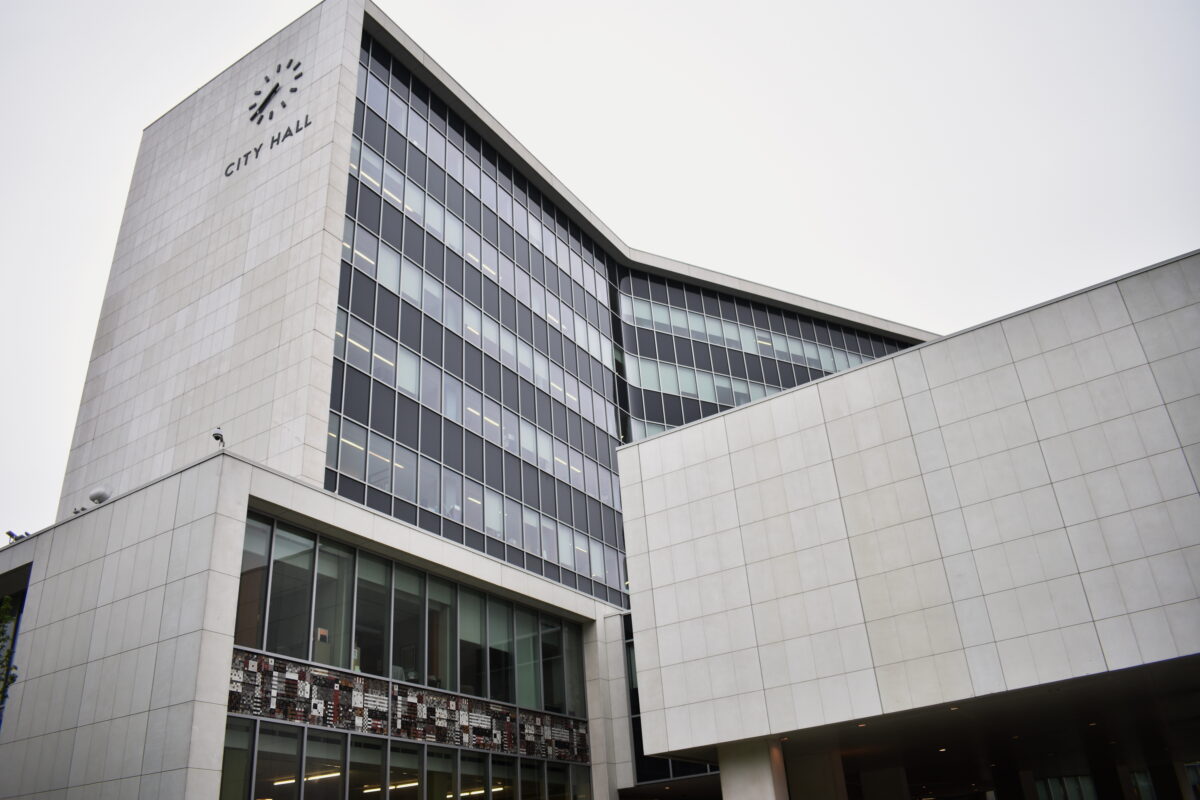Appeals against provisions of Hamilton’s new Development Charges Bylaw continue to proceed at the Local Planning Appeal Tribunal.
Today was the second Case Management Conference hearing in the appeals. The various parties continue to negotiate with the City to settle their concerns, and the remaining issues are being narrowed in the event that a fully full hearing is required in the future.
Michael Kovacevic, a lawyer for the City of Hamilton says he is “very hopeful” that the appeals can be settled in mediation without a full Tribunal hearing.
“In my years, no DC [development charge] appeal has gone to a hearing”, he stated to the Tribunal this morning.
The exact details of the appeals are not yet available to The Public Record, a request has been made to the Tribunal for the submissions of the parties.
The appellants in today’s hearing were 2362302 Ontario Inc., the West End Home Builders Association (formerly known as the Hamilton-Halton Home Builders’ Association), Mohawk College, and McMaster University.
The McMaster appeal is the most complex. The underlying question is if McMaster can de facto grant tax exemptions to private companies as part of the university’s for-profit private-public partnership student residence developments.
There were two primary issues discussed this morning: the feasibility of mediation between the parties, and a motion by the City of Hamilton to dismiss McMaster’s appeal for lack of jurisdiction.
The City of Hamilton filed 197 pages of arguments to support its request for the Tribunal to dismiss McMaster application. McMaster’s lawyers responded with over 700 pages of counter arguments. [The documents are not yet available from the Tribunal]
Due to how McMaster’s original charter is written, McMaster is not a Crown agency, and therefore subject to 50% development charges on its student residence buildings and the full transit component of development changes for all projects.
As part of a COVID omnibus bill, the Ontario Progressive Conservative government is giving McMaster (and all other universities which are not already Crown agencies) full exemption from development charges (Schedule 11, Bill 213).
[The same COVID omnibus bill forbids ranked balloting in municipal elections and will make the controversial Canada Christian College a full university]
While this change in legislation will make moot the issue of development fees for McMaster University’s own projects, the debate regarding if McMaster can grant tax exemptions as part of its ancillary revenue operations will remain.
McMaster University is hoping to leverage its tax-exempt status in partnership with private developers to increase the number of student housing spaces it operates. The partnerships include profit-sharing between the university and the private corporations partnering with it. An example of this will be the proposed building at 1190 Main Street West.
During Hamilton’s recent Development Charges Review, which resulted in the Bylaw under appeal, McMaster asked to have the existing 50 per cent DC exemption for its projecct extended to itsfor-profit private partnershipss. One of the two currently proposed projects is on land owned by McMaster, the other is one land McMaster will lease.
During this April 2019 meeting, Ward 9 Councillor Brad Clark asked about the partnerships and the financial details.
“If an individual developer comes in to build student residences then they pay development charges. But if McMaster does it, you are exempt from them”, Clark started his question. “We’re trying to understand how an independent developer can get an exemption through McMaster University to build residences when they cannot do that on their own”.
McMaster did not answer the question, you can view the non-answer on YouTube.
At today’s LPAT CMC hearing, McMaster asked the Tribunal to deny the City’s application to dismiss its appeal, and stated that the university is concerned about delays resulting from the City’s motions in the LPAT proceedings. A lawyer for McMaster says delays could cost the university millions of dollars.
Mohawk College is challenging the City of Hamilton’s applying of any potential development fees upon its projects. Mohawk College is a Provincial Crown Agency and argues that it therefore is constitutionally exempt from taxation.
Lawyers for 2362302 Ontario Inc state their client and the City are working towards a settlement and they are optimistic a settlement will be reached in their appeal. The lawyers for Mohawk College and West End Home Builders Association state they are interested in pursuing mediation with the City to reach a settlement.
LPAT Member presiding over today’s Case Management Conference Blair Taylor stated he will take time to make a decision on the matters discussed today, that the Tribunal will provide mediation assistance to the parties, and that he will impose a strict timeline for actions required by the various parties in the coming months.
The next date for the appeal will be set in the CMC order to be issued.
Production Details v. 1.0.0 First published: November 3, 2020 Last edited: November 3, 2020 Author: Joey Coleman Edit Record v. 1.0.0 original version

